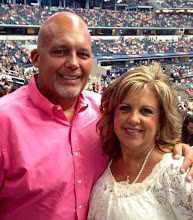Twenty years ago I attended a church that was pastored by a very dynamic speaker. He liked the congregation to interact with him as he was preaching and when he made an important point, he would ask “Amen or Oh Me?” The expectation of course was that we would respond with an affirming “Amen!”
It was new to me and very interesting. And for a while, I had no problem affirming his points. But then he took a disturbing turn in his preaching and I found myself thinking “Oh Me!” more and more frequently.
This culminated for me during a series of messages he preached on Ephesians chapter 6 where Paul encourages us to put on the “full armor of God.” If you’re familiar with this passage you know there are several pieces of this armor: Leg protection of truth, breastplate of righteousness, gospel shoes, shield of faith, and the helmet of salvation
The problem came when 4 weeks of messages were devoted to the idea that the “shield of faith” was God manifesting his power in and through the saints with signs and wonders. There is absolutely no way to interpret that passage as “signs and wonders.” The shield is a defensive weapon with a cork covering to extinguish the flaming arrows of the enemy. Yet, he continued to stress this, and ask the congregation to affirm this wrong teaching. When others would respond “Amen,” I had to say “Oh Me!”
We were seriously off course. I met with the pastor to discuss my concerns and told him clearly that he was off-base and had taught that passage completely out of context. He responded that the passage was “dripping with the power of God.” I said, “Maybe so, but there is absolutely no way that the shield is about signs and wonders.” As I persisted, he finally relented and said, “Maybe your right, but sometimes you have to stretch things some in order to bring people along.”
I was appalled. I told him he was wrong. We left that church right away.
But the whole episode taught me an important lesson: Too many people allow their pastors and teachers to study God’s word for them and tell them what it says. This is dangerous. Creative and charismatic communicators exert a lot of influence. Too often people are caught up in the delivery and don’t pause to examine the substance.
I think this episode has lessons for leaders and followers in any environment. First for leaders: we need to be fully aware of the esteem in which some people hold us, and we need to make sure we are worthy of that esteem. We also need to be aware of the power we have because of our position. People are dependent on us and we need to handle their dependence delicately. We need to be careful that we don't take advantage of people's esteem and approval. That's why I keep coming back to the "what is your motive?" theme.
The episode has implications for followers as well. Loyal followers don't follow blindly or unquestioningly. They follow with their eyes open and ask questions when things seem out of line. When a leader seems headed in the wrong direction, loyal followers raise a flag. Good followers don't let their leaders derail by not challenging them or failing to discuss their leader's blindspots.
This experience challenged me to rethink my own teaching. I realized that there are a lot of people who listen to – and even appreciate my teaching in the various venues in which I teach. But, I realized that I had a moral obligation to make sure that I was not abusing my position or taking advantage of their approval of me.
So, I decided that I would change my teaching approach to facilitate my students to interact with the text themselves, to make their own observations and interpretations, and not rely solely on me. My approach shifted to more of a facilitator role and less of a lecturer role. I began requiring my students to open their Bibles and study it for themselves.
I continue to be amazed at how so many smart people seem to check their minds at the door in two venues: the voting booth and the church.
We are told to love the Lord with our whole hearts, our whole souls, and our whole minds. We should use them.
And as Christ-followers we are given the gift of the Holy Spirit to assist our discernment. If we don't understand something, we are told to ask the Lord for wisdom. And we are promised that He will give it to us generously.
As followers, we really have no excuse for following blindly.
And as leaders, we have a moral obligation not to ask our followers to do so.
Amen or Oh Me?

